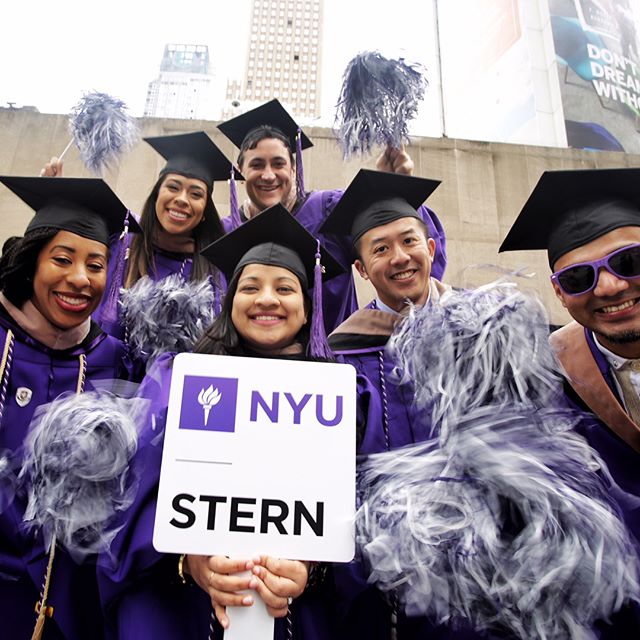UPDATE: This post was originally published on April 10, 2020. It has been updated with new tips and information below.
Writing MBA essays can be a daunting task for many applicants. On the other side, they’re an opportunity to take stock of your achievements, define goals and look forward to your next steps.
As you make your way through the applications, there are some key DOs and DON’Ts to be aware of to help your essays stand out.
Things like including sufficient detail to enrich your essays and having well-defined long and short-term goals fall into the DO’s category while things like flubbing the personal essay and failing to answer the essay prompt would fall under the DON’T category.
Let’s have a look at the top Dos and Don’ts for your MBA essays.
MBA Essay DOs
Use the active voice
Let’s start with grammar.
Active voice demonstrates an attitude of ownership and makes your sentences more powerful and direct. The alternative, passive voice’s big flaw is that it can sound too deferential and ambiguous.
Over the course of an entire essay or an entire application, consistently using active language creates an impression of proactiveness and confidence. See if you can sense the difference between these two sentences:
“I designed a tool that reduced input time by 300%.”
“Input time was reduced by 300% through a tool that was designed by me.”
In essence, the two sentences state the same facts. But, which one packs a stronger “punch”?
Additionally, the active voice helps more team-oriented professionals highlight their own actions even in the context of collectively achieved goals. If you are one of these people, you may tend to avoid proclaiming your achievements for fear of not giving credit to others who may have offered support or advice. The good news is that you can still give credit where credit is due AND use active voice. Here’s an example:
“After consulting with other team members and the IT team, I designed a tool that reduced input time by 300%.”
The added benefit of using the active voice is that it helps you cut down on word count!

Quantify results
It’s important as you work through your application essays to get used to researching and adding in numbers that illustrate your success. They are important support to help the admissions committee understand how significant your achievements are.
If you were involved in a big project, for example, mention the size of the budget so the admissions committee can understand how important the project was. If you managed a large team, state how many team members there were. If the results of your analysis were significant savings, write down exactly how much savings you generated. Here are some examples to compare:
Example 1:
“During my first year at McKinsey, I was an analyst for a major turnaround project for Brazil’s biggest food packaging company.”
While this sounds great, it is not quite clear and comes off as quite vague. This will likely not stick in the reader’s memory as you’re not bringing them directly to the results. Your achievements will be even more impressive if you find out the budget for that project and include it in the essay.
Now try this:
“During my first year at McKinsey, I was an analyst for a major turnaround project for Brazil’s biggest food packaging company, with a budget of $2.5bn.”
Example 2:
“I managed a large team, mainly comprised of senior members and those with more experience than me.”
That does sound very impressive, but details will make it sound even better:
“I managed a team of 35 analysts, mainly comprised of senior members and those with more experience than me.”
Example 3:
“My findings resulted in significant savings for the company.”
Wonderful! All that’s lacking is to provide how much savings.
“My findings resulted in ~$250,000 in savings for the company that year.”
Be specific
While it’s important to be specific with numbers, it’s also important to provide necessary details, especially when you are illustrating situations, tasks, actions, and results, in your essays.
It’s very common for applicants to talk generally about their work, but the more strategic detail you can provide to the admissions committee, the better equipped they’ll be to make a decision on your application. Giving vague statements and making them read between the lines won’t win you any supporters.
For example, if you write something like this:
“I was hired for a long-term project for one of Brazil’s largest car manufacturing plants.”
Some questions immediately come to mind:
What year was this? What role did you hold? What was your job title? How long did the project last? What was the scope of the project? What’s the name of the company?
Try to think of how someone who knows nothing about you or your past will read your essay and what they will need to know. These details will greatly enrich your essays, so don’t skimp on them.
Focus on meaning
With all that being said, at some point, you will need to depart from rote details and bring the spark of life to your essays. And that “spark” will come when you link the details of your work with the meaning it holds for you.
Adjectives such as “exciting”, “enriching”, “gratifying”, “career defining”, “important milestone” and other similar words can help color your essays and demonstrate the significance that your projects and achievements held for you.
It can also help to explain your motivations and passions. One great way of doing this is explaining the first time you realized that you wanted to take a certain approach or achieve your goals, such as a story from your childhood in your intro, or in your body paragraphs, a pivotal point in your career.
Here’s an example of an applicant expressing her admiration of agile methodology:
“It was during this case that I was first introduced to agile methodology, which addresses digital product desiring failure by using the following pillars: customer-centricity, adaptability, focus on measurable results and team collaboration…The efficiency of agile methodology became a passion of mine, giving me cutting edge knowledge on how to develop exceptional products.”
Research each school
It would be a grave mistake to believe that you can write one blanket essay for each school. Each MBA program has its own vision and mission and while they will have similarities, it’s important for you to familiarize yourself with how each of them is unique. Remember to think of the admissions committee as a potential employer, and you need to prove to them why you are a good fit. Therefore, it’s essential to tailor your responses to what each school will want in a potential student!

(Photo courtesy of @nyustern on Instagram)
You don’t necessarily have to start all over from scratch for each essay, but it will be useful for you to learn about the values of each school in order to edit your essays to ensure your language and examples reflect that you are a good fit.
For example, Berkeley Haas’ hallmark is innovation. Consider your career from the perspective of innovation, take notes and think of examples to incorporate into your essays.
Colombia puts a high value on community while London Business School puts an emphasis on a global mindset. The more you understand the values of each school, the better you’ll be able to provide examples that are aligned with those values in your essays.
Another aspect of this “Do” is to research the classes, events, clubs, organizations, internship opportunities, professors and other aspects that make each school unique. At some point you will have the chance to express which of these most appeal to you and why, so be prepared to give a well-researched answer.
Know Where You’re Headed
It’s important to start the application process with well-defined goals and a clear plan to reach them. This is one of the things that every school will ask you. Not only that, but they will expect clear, well-defined goals that are consistent with your career journey and experiences. So it’s important that you take the time before writing to flesh out very specific short and long-term goals.
Here’s a great example from one of our clients:
“My earnest desire is to bridge Nigeria’s infrastructure gap so that it becomes an enabling environment that supports enterprise and its citizens’ well-being. While transitioning from private equity to infrastructure investment would be ideal, the decline in foreign investors’ confidence in Nigeria has motivated me to become a policy adviser. I want to champion the development and implementation of data-driven policies to attract foreign direct investment towards infrastructure.”
The applicant clearly states the role she aims to hold (policy adviser) and what she intends to do (to bridge Nigeria’s infrastructure gap so that it becomes an enabling environment that supports enterprise and its citizens’ well-being…to champion the development and implementation of data-driven policies to attract foreign direct investment towards infrastructure).
MBA Essay DON’Ts
Flub the personal essay
Personal essays are a great opportunity to strategically show how your character links with your past and future and allow schools to get to know you on a deeper level. Here, they want a glimpse into your character, your personality, your history and your most deeply held values.
For some applicants, the personal essay is a welcome relief after all that talk of work. For others, it can be one of the most challenging parts of the application process. These questions require deep introspection and soul-searching and an ability to draw out personal themes.
Perhaps the most important thing to remember as you draft your personal essay is to speak from your heart. Don’t write an essay based on what you think the admissions committee wants to hear. In fact, they want to hear about you. If you can connect this to your goals, even better!
If the personal essay prompt is about an activity you feel passionate about, don’t say that you love reading to children when your true passion is playing the saxophone in a jazz band. This will come through in your writing and won’t bode well for your image to the adcom.
Instead, be yourself. If you spend your time crafting an insincere personal essay, it will not only show, but you will lose out on the opportunity to allow the admissions committee to get to know the real you.
Fail to answer the prompt
Many MBA essay prompts are very similar and applicants can fall into the trap of not reading the instructions closely. We often have to remind clients to stick to the question or to be sure they are answering every part of the question. This year, for example, Rotman’s personal essay had these instructions:
Our admitted students stand out by doing interesting things with their personal and professional lives — something we describe as the ‘spike factor’; what are the things that you have done in your life that demonstrate Passion/ Grit/ Resilience/ Innovation/ Drive/ Ambition and more? This can cross all or any aspects of life outside of work – hobbies, volunteerism, awards, entrepreneurial ventures, sports and the arts. We believe that exposure to a rich diversity of viewpoints makes for a superior learning experience and pride ourselves on building a diverse class of exceptional individuals who will go on to make the School proud as professionals and alumni.
Please upload 1-3 of your ‘spikiest’ pictures and use the essay to tell us why you have chosen these particular images to illustrate your ‘spike factor’ (use up to 1000 words).

It’s not a particularly difficult prompt and actually quite a broad topic, but all the different details were a little confusing for students to get a grip on. Many forgot to include the last part, which asks applicants to upload 1-3 photos and had to upload the photos after they had written the essays. Often, the essays that were written before they had chosen photos didn’t exactly match the photos, whereas the ones that were written based on the photos were stronger, more cohesive and had greater personal impact.
Bottom line: pay close attention to the prompt and tailor your responses accordingly so you don’t end up having to do extra work rewriting them later.
Restrain yourself because of word count
MBA essay word count limits can be a bit tyrannous. Many students will look at a short word count and feel tempted to give up before they get started.
London Business School, for example, asks you to tell them your most significant international experiences to date in 100 words or less. For these questions, we advise our clients to stick to the point and focus on quality of detail rather than trying to fit too many ideas into a small space. The most critical thing is to define your theme and write a compelling, detailed essay.
Don’t be afraid to overwrite at first- it’s a natural part of the writing process. Get those details, thoughts and examples down. You can always prioritize examples and edit it down afterwards — sometimes it is easier to do this once you have your ideas out in the open!
Be too casual or try to be funny
Once in a while, a candidate decides they want to entertain the admissions committee by being witty, funny or overly conversational in tone. While we understand that you are trying to create rapport with the readers, this is categorically not recommended for several reasons:
- It sends the message that you’re not taking the application process seriously,
- It assumes that the admission committee shares your sense of humor, which they probably do not,
- It diverts attention from the content of your essays.
If you’re tempted to use any of these ploys in your essays, just say no! You will have the opportunity to be more personable during your interview.
Fail to address employment gaps or low test scores
Applicants are almost always given the opportunity to answer the question: “Is there anything else we should know?” If you have gaps in your career or got a low score on your GMAT, it’s very important that you take this opportunity to address these issues in this question.
Neither of these factors mean you will be rejected from the application process, but you do need to address them. This applicant did a great job addressing a low GMAT score:
“While I have limited educational experience in quantitative subjects, I do not believe that my GMAT score is indicative of my aptitude for quantitative work. I enjoy the problem-solving nature of quantitative work and appreciate the insights provided by quantitative analysis. While I did not take math courses in undergrad, I received a B in Calculus at a junior college when I was a senior in high school (which translated to an A on my high school grading scale).
My analytical mindset is the reason that senior leadership at Method Studios selected me from many talented employees to manage the largest projects/budgets (up to US$1.5 million per project, averaging US$300,000) soon after I started working there. As a result of my success, this year, our CFO and finance team trusted me with a larger quantitative task—managing our department’s entire annual revenue of US$10 million across 100+ projects each year…”
You can also use this space to discuss extracurricular activities or other achievements that you have not had the opportunity to discuss in other responses. In general, we suggest that our clients use this space strategically and take full advantage of the extra space to sell yourself!
Underestimate the importance of editing
Crafting standout essays often requires a great deal of persistence, patience, introspection and editing. It’s hard to write so much about yourself, and you will need time to reflect, rethink, and rework your ideas. So it’s essential that you leave yourself the time for this process to unfold.

As you write your essays, ideas, themes, concepts and stories will start to take shape and it would be a shame if this process were cut short because there wasn’t enough time to fully develop your essays before the deadline. Your essays deserve the chance to evolve so that they most accurately capture your experiences, values, goals and dreams!
Ensure Your MBA Essays Stand Out
The MBA essay writing experience holds unique challenges for each candidate, and strategizing this, especially when you are juggling this with work and extraprofessional tasks, can be difficult on your own.
Our dedicated team is ready to offer the support, encouragement and insider expertise to help you find your voice and “wow” the admissions committee.
We have one mission: provide the best possible service to our clients and get them the best possible results.
Serving our customers is at the core of our company, and we know that applying for an MBA can be a difficult, long process, but our goal is to take away as much of the stress as possible by acting as your ally in the process.
So if you need much more than just a few comments on your essay, but instead want focused help shaping how you present your life’s greatest hits to one of the world’s toughest critics, you can count on us.
In the words of our client Henrique,
“Ellin helped me in the application process since the beginning on how to organize myself for the whole year. I truly believe that my interactions with her not only provided a foundation for the application creation, but also, and more importantly, structured my life at business school. I even got a scholarship. I really recommend her since she is really committed, hard-working and made me feel comfortable and confident during the entire process. Thanks for the phenomenal service, Ellin.”
Ready to add more value to your essays than you ever thought possible? Let our award-winning team of writers and storytellers help you make an unforgettable first impression!
Real MBA Essays That Got People In
School-specific sample essays that got our clients accepted






